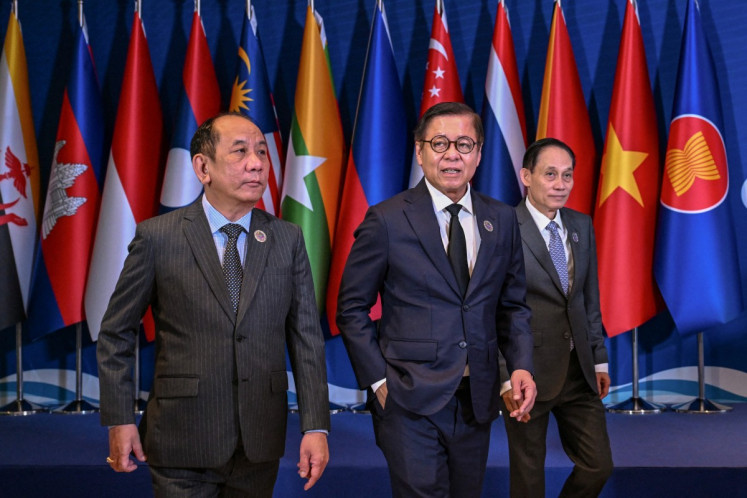Popular Reads
Top Results
Can't find what you're looking for?
View all search resultsPopular Reads
Top Results
Can't find what you're looking for?
View all search resultsAnalysis: Prabowo’s pledge to eliminate outsourcing met with scepticism
Change text size
Gift Premium Articles
to Anyone
P
resident Prabowo Subianto’s pledge to phase out Indonesia’s outsourcing system amid a wave of layoffs and rising unemployment has sparked mixed reactions. Announced during the May Day celebrations on May 1, 2025, the proposal was framed as a bold step to improve labor conditions. But critics warn it may prove to be an empty promise driven by political aspirations rather than grounded strategy.
President Prabowo has the establishment of the National Labor Welfare Council, with the elimination of outsourcing as its first priority. The announcement was met with applause from labor unions, who for over two decades have argued that outsourcing contributes to job insecurity, unclear career progression and increased vulnerability to layoffs.
The outsourcing system was first introduced during President Megawati Soekarnoputri’s administration in the early 2000s. Since then, it has become deeply embedded in various sectors of the economy. President Prabowo's envisioned Labor Welfare Council will consist of key labor figures from across the nation and is tasked with reviewing labor regulations and offering policy recommendations that safeguard workers' rights.
While the council aims to ensure a smooth transition by balancing labor welfare with investment climate concerns, the feasibility of completely eliminating outsourcing remains in question. Critics argue the plan lacks a clear roadmap and appears to be more of a symbolic gesture tied to the political euphoria of May Day, rather than a well-structured policy backed by economic analysis.
Following the president’s remarks, the Manpower Ministry pledged to draft a new regulation aligned with Constitutional Court Decision No. 168/PUU-XXI/2023 on the Job Creation Law. Minister Yassierli reiterated longstanding concerns about outsourcing, echoing labor union claims about its negative consequences for workers.
However, these declarations come against the backdrop of troubling labor market indicators. In the first two months of 2025 alone, the Manpower Ministry recorded 18,610 layoffs, with more than half occurring in Central Java. By February 2025, the total number of unemployed Indonesians had reached 7.28 million, an increase of approximately 83,000 from the previous year. Although the overall unemployment rate (TPT) slightly declined to 4.76 percent, the youth unemployment rate for those aged 15-24 remains alarmingly high at 16.16 percent.
Labor market experts caution that dismantling the outsourcing system without a viable alternative could do more harm than good. Outsourcing is widely practiced internationally and has become an integral part of many modern business models. A blanket ban risks undercutting Indonesia’s competitiveness, particularly in labor-intensive sectors already struggling to stay afloat.



















